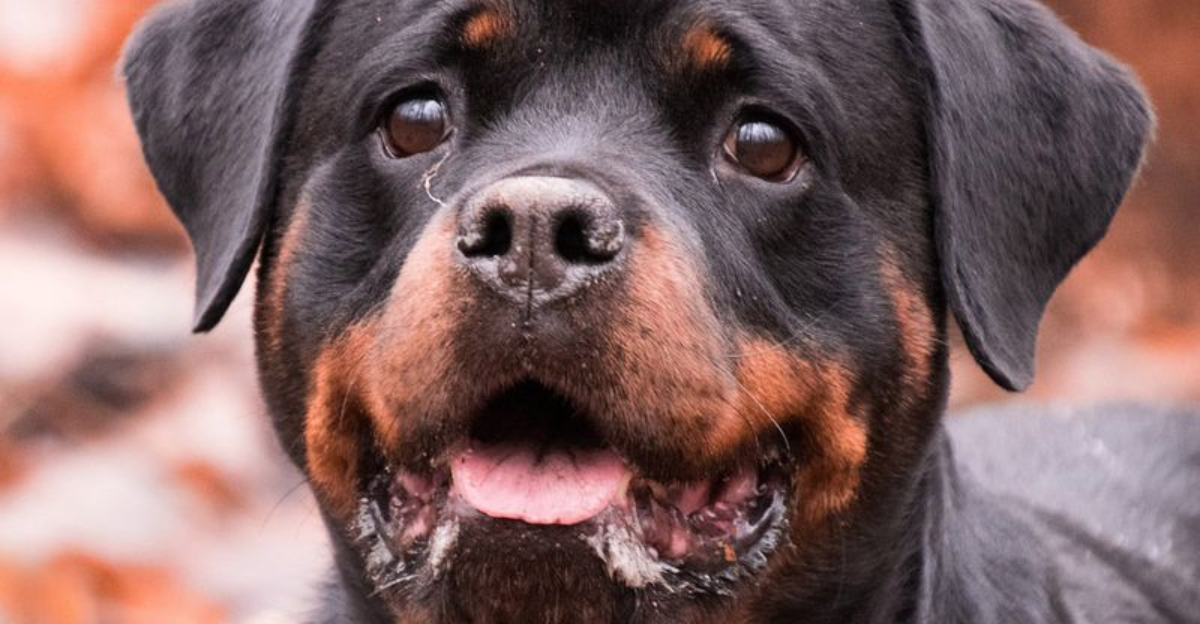Overbreeding in dogs has led to a myriad of health issues, altering the essence of many beloved breeds. This article delves into 15 dog breeds that have unfortunately suffered due to excessive breeding. Each breed’s charm and unique traits have been overshadowed by health complications, ranging from respiratory problems to joint pains. This exploration not only highlights the breeds affected but also underlines the importance of responsible breeding practices to preserve these canine companions’ health and vitality.
English Bulldog
The English Bulldog, once a symbol of tenacity, has faced a sad transformation. Overbreeding has exaggerated their iconic wrinkles, causing severe skin infections. Their endearing snorts and grunts stem from brachycephalic features, leading to breathing difficulties. These lovable dogs often suffer from hip dysplasia, restricting their playful nature. Originally bred for bull-baiting, their fierce past contrasts starkly with their current vulnerabilities. Breeders now grapple with maintaining their distinct appearance without compromising health. As the breed faces increasing health challenges, the need for ethical breeding practices remains paramount to safeguard their future.
German Shepherd
Admired for their intelligence and loyalty, German Shepherds have become victims of their popularity. Overbreeding has led to a pronounced sloped back, which predisposes them to hip and elbow dysplasia. These agile dogs, once famed for their work with police and military, now often face mobility issues. Breeders eager to meet demand have sometimes sacrificed health for aesthetics. Their strong protective instincts remain intact, but their physical resilience is compromised. Preserving the noble essence of this breed requires a concerted effort towards health-focused breeding. Only then can their legacy endure without distress.
Pug
With their distinctive curled tail and round eyes, Pugs are undeniably charming. However, their flat faces result from overbreeding, leading to brachycephalic obstructive airway syndrome. This condition makes breathing a constant struggle. Their playful antics are often hampered by overheating. Originally from China, Pugs were once a symbol of royalty. Today’s breeders face the challenge of balancing their unique appearance with health. Ensuring Pugs lead a life free from continuous respiratory issues requires prioritizing well-being over looks. As guardians of their legacy, breeders must tread this path with care.
Cavalier King Charles Spaniel
These elegant companions, with regal namesake, have been marred by heart problems due to overbreeding. Cavalier King Charles Spaniels often develop mitral valve disease, leading to heart failure. Their affectionate nature is shadowed by this genetic ailment. Bred for companionship, they embody warmth and loyalty. Breeders now face the daunting task of prioritizing cardiac health in breeding programs. Ensuring these spaniels enjoy a healthy lifespan involves careful genetic screening. Their legacy as gentle companions hinges on responsible breeding choices, preserving both their loving nature and physical well-being.
Labrador Retriever
Labradors, cherished for their friendly demeanor, have encountered challenges due to overbreeding. Increased demand has led to hip and elbow dysplasia, plaguing these energetic dogs. Their boundless enthusiasm often masks underlying joint pain. Originally from Newfoundland, they were bred as working dogs. The surge in popularity has necessitated a focus on health-conscious breeding. Maintaining their sprightly nature requires addressing genetic predispositions. By ensuring meticulous breeding practices, the Labrador’s future as a healthy, happy family companion remains bright. Balancing their extroverted character with physical health is key to their continued joy.
French Bulldog
Petite and charming, French Bulldogs have captivated hearts worldwide. Yet, their small stature and brachycephalic features have resulted in respiratory issues. Overbreeding to meet demand has exacerbated these health challenges. Their history as companions to lace workers in France belies their current struggles. As these dogs experience breathing difficulties, maintaining their playful spirit becomes challenging. Breeders now face the task of preserving their distinctive looks while enhancing health standards. Prioritizing well-being over aesthetics is crucial in ensuring the French Bulldog’s continued delight to families worldwide.
Rottweiler
Rottweilers, known for their strength and loyalty, have been affected by overbreeding, leading to health complications. Hip and elbow dysplasia are common, hindering their robust nature. Originally bred as herding dogs in Germany, they possess an unwavering protective instinct. However, the focus on physical traits has overshadowed health in some breeding practices. Adopting stringent breeding protocols can mitigate these issues, allowing Rottweilers to thrive. By emphasizing genetic health, breeders can ensure these dogs remain both formidable and healthy, preserving their legacy as guardians and companions.
Dachshund
Dachshunds, with their elongated bodies, have become vulnerable to intervertebral disc disease due to overbreeding. This condition restricts their lively demeanor, causing significant back pain. Originally bred for hunting, their brave spirit contrasts with their physical limitations. Breeders now grapple with balancing their unique structure with health considerations. Addressing genetic predispositions is essential to ensuring Dachshunds lead fulfilling lives. Their spirited character deserves preservation through careful breeding. By prioritizing health, breeders can safeguard the Dachshund’s legacy, allowing them to remain cherished companions.
Boxer
Boxers, with their exuberant energy, have faced challenges from overbreeding, particularly heart issues like cardiomyopathy. These athletic dogs, known for their playful nature, often struggle with stamina due to cardiac concerns. Originally bred for hunting and guarding, their robust appearance masks vulnerabilities. Breeders are tasked with focusing on heart health alongside maintaining their distinct look. Promoting genetic diversity and health screenings is vital in preserving the Boxer’s zest for life. Through responsible practices, these dogs can continue to be lively, loving family members without compromising their well-being.
Golden Retriever
Golden Retrievers, beloved for their friendly demeanor, have experienced health challenges due to overbreeding. Hip dysplasia and certain cancers are prevalent, impacting their joyful presence. These dogs, once prized for their retrieving skills, now often face physical limitations. Breeders must emphasize health over appearance to maintain their vitality. Genetic screening and responsible breeding can mitigate these issues. Ensuring that Golden Retrievers continue to spread happiness requires a commitment to their well-being. By prioritizing health, breeders can uphold their legacy as cherished family companions.
Shih Tzu
Shih Tzus, with their regal appearance, have been impacted by overbreeding, leading to eye and respiratory problems. These affectionate dogs, once companions to Chinese royalty, now face health challenges. Their short snouts contribute to breathing difficulties, while prominent eyes are prone to injury. Breeders must prioritize health to ensure these dogs continue to thrive. By refining breeding practices, Shih Tzus can retain both their charm and vitality. A focus on well-being over aesthetics is essential in preserving their legacy as beloved companions.
Beagle
Beagles, known for their keen sense of smell, have faced health challenges due to overbreeding, particularly hip dysplasia and epilepsy. These energetic hounds, originally bred for hunting, often encounter physical limitations. Breeders must focus on genetic health to ensure their resilience. Promoting diversity in breeding practices can mitigate health risks. By prioritizing well-being, Beagles can continue to be lively, spirited companions without compromising their quality of life. Ensuring their future as healthy, happy dogs requires a commitment to ethical breeding standards.
Chihuahua
Chihuahuas, with their diminutive size, have been affected by overbreeding, leading to dental issues and luxating patellas. These spirited dogs, known for their boldness, often face health challenges. Originally from Mexico, they were companions to Aztec nobles. Breeders must prioritize health concerns to ensure these tiny dogs lead full lives. By focusing on genetic health, Chihuahuas can retain both their vigor and charm. Promoting responsible breeding practices is crucial in preserving their legacy as lively, loyal companions. Their tenacious spirit deserves careful preservation through ethical choices.
Yorkshire Terrier
Yorkshire Terriers, with their luxurious coats, have faced health challenges due to overbreeding, particularly tracheal collapse. These tiny dogs, originally bred in England, often face breathing difficulties. Breeders must prioritize health to maintain their vitality. By emphasizing genetic health over appearance, Yorkshire Terriers can continue to be vibrant, lively companions. Promoting responsible breeding practices ensures their future as healthy, happy family pets. Their spirited personality and elegance deserve preservation through careful choices. Prioritizing well-being is key to safeguarding their legacy.
Saint Bernard
Saint Bernards, with their imposing size, have suffered from overbreeding, leading to hip dysplasia and heart issues. These gentle giants, once rescuers in Swiss Alps, now face significant health challenges. Breeders must focus on genetic health to preserve their strength and resilience. By promoting responsible breeding practices, Saint Bernards can continue to embody both grandeur and vitality. Ensuring their future as beloved family companions requires a commitment to their well-being. Their gentle demeanor and history of heroism deserve careful preservation through ethical choices.















